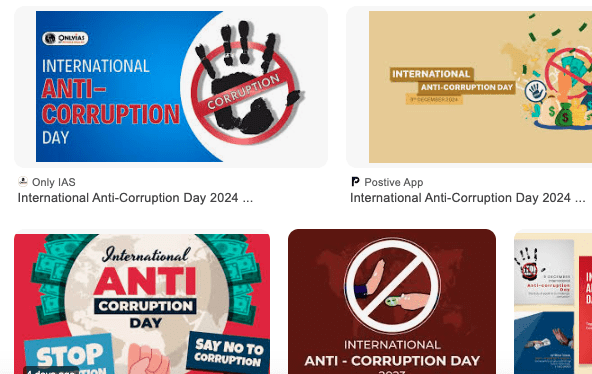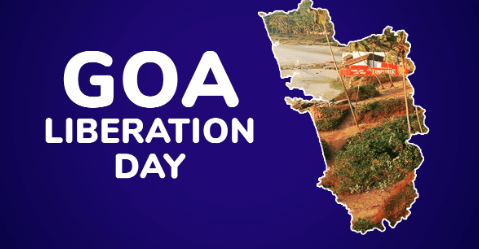The 9th of December 2024 will be designated as International Anti-Corruption Day 2024. The goal of 2024’s International Anti-Corruption Day is to increase public awareness of the problems associated with corruption.
December 9, 2024, will be designated as International Anti-Corruption Day 2024, uniting people worldwide in the fight against corruption. This United Nations-initiated day emphasises how urgently governments, the private sector, and individuals must work together to eradicate corruption.
“Uniting with Youth Against Corruption: Shaping Tomorrow’s Integrity” is the theme for the 2024 International Anti-Corruption Day. To make everyone #UnitedAgainstCorruption, organisations from all around the world, including those in India, will collaborate.
International Anti – Corruption Day 2024
Corruption slows a country’s progress, erodes public trust, and undermines institutions. International Anti-Corruption Day (IACD), which is celebrated on December 9 every year, aims to combat this by increasing awareness and motivating action. IACD’s emphasis on youth and global appeal for integrity make it even more important in 2024.
| International Anti-Corruption Day 2024 Overview | |
| Date | December 9, 2024 |
| Established by | United Nations General Assembly in 2003 through Resolution 58/4 |
| Theme | “Uniting with Youth Against Corruption: Shaping Tomorrow’s Integrity” |
| Anti-Corruption Campaign | #UnitedAgainstCorruption |
| Anti-Corruption Campaign Timeline | December 2024 to December 2025 |
| Key Event | Conference of the States Parties to the United Nations Convention against Corruption (CoSP11) 2025, Doha, Qatar |
Phillip Hughes – Remembering on 10th Death Anniversary
International Anti-Corruption Day 2024 Theme
“Uniting with Youth Against Corruption: Shaping Tomorrow’s Integrity” is the theme for the 2024 International Anti-Corruption Day. Involving young people in anti-corruption initiatives is the main focus of this issue. This theme aims to empower them to take action by educating them about the effects of corruption.
Young people are viewed as change agents with the power to influence society and alter policies. The international community seeks to increase the effectiveness and inclusivity of anti-corruption initiatives by involving them. The 2024 campaign will set the stage for conversations at CoSP11, where young people may influence policymakers and advocate for more robust anti-corruption policies.
History of International Anti- Corruption Day
The United Nations General Assembly adopted the United Nations Convention Against Corruption (UNCAC) on October 31, 2003, marking the beginning of International Anti-Corruption Day. 140 nations have signed this treaty, which went into effect on December 14, 2005.
The UN General Assembly declared December 9 to be International Anti-Corruption Day in 2003 in recognition of the significance of raising awareness of the problem on a worldwide scale. This day has evolved into a forum for exchanging best practices, putting anti-corruption laws into effect both domestically and internationally, and fostering global collaboration.
Corruption Perceptions Index (CPI)
Transparency International’s annual Corruption Perceptions Index (CPI) is one tool used to gauge the level of corruption in various nations. On a scale of 0 to 100, where 100 indicates exceptionally clean, the CPI assigns a score to each nation. The CPI assists groups and policymakers in identifying issues and developing more effective anti-corruption policies.
India has received a worrying ranking in the Global Corruption Perception Index. India received a score of 40 in 2023, placing it 93rd out of 180 countries. This score demonstrates that India still faces significant obstacles in its battle against corruption, even in the face of initiatives to increase accountability and openness.
Anti-Corruption Laws and Policies in India
To combat corruption and advance openness, India has put in place a number of anti-corruption legislation and regulations. These frameworks seek to guarantee moral governance and improve accountability.
India’s Principal Anti-Corruption Laws
The 1988 Prevention of Corruption Act defines corruption and establishes sanctions for transgressions by public employees. 2018 saw an amendment that broadened the PCA’s application to include sanctions for bribers.
Sanhita Bharatiya Nyaya, 2023: The Indian Penal Code of 1860 was superseded by this act. It added penalties for bribery and updated and changed a number of anti-corruption legislation.
In order to handle complaints about corruption and guarantee accountability in public administration, the Lokpal and Lokayuktas Act of 2013 established an ombudsman mechanism.
The 2014 Whistle Blowers Protection Act protects those who expose unethical behaviour by shielding them from reprisals and encouraging openness.
Additional legal measures include the Benami Transactions (Prohibition) Act of 1988, the Prevention of Money Laundering Act of 2002 (PMLA), and the Black Money (Undisclosed Foreign Income and Assets) and Imposition of Tax Act of 2015.
Also Read:

Shubhangi Gupta is a distinguished content writer and the visionary founder of The Unpleasant – Acha Nahi Sabse Sacha. With a Master’s degree in Commerce from University of Lucknow, Shubhangi has seamlessly blended her academic background with her passion for reading and writing, embarking on a successful career as a content writer since 2019.






One thought on “International Anti-Corruption Day 2024 Theme, Significance”